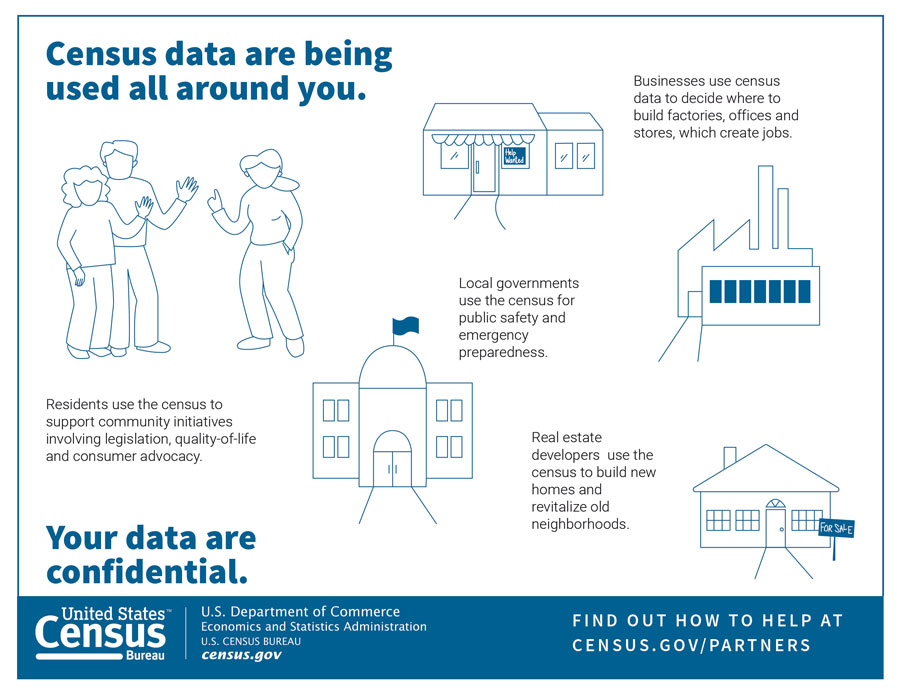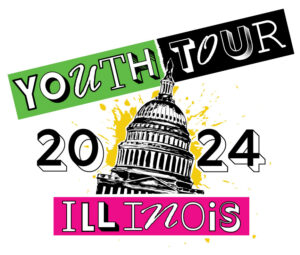Every decade, a census is taken as mandated by the U.S. Constitution and conducted by the U.S. Census Bureau, a nonpartisan government agency. Each home will receive an invitation to respond to a short questionnaire online, by phone or by mail. 2020 marks the first time response can be made online.
The census provides critical data that lawmakers, business owners, teachers and many others use to provide daily services, products and support for you and your community. Every year, billions of dollars in federal funding go to hospitals, fire departments, schools, roads and other resources based on census data.
The results also determine the number of seats each state will have in the U.S. House of Representatives.
The questions are simple and include such things as how many people live in your home, their ages, race, sex and relationship to you, and whether or not you own your home. The bureau is bound by law to keep your information confidential and responses are used for statistical information only.
The census will NEVER ask you for your social security number, money or donations, your bank or credit card account numbers or anything on behalf of a political party. If someone claiming to be from the Census Bureau contacts you via email or phone and asks you for one of these things, it’s a scam, and you should not cooperate.
If someone visits your home to collect a response for the 2020 Census, first check to make sure they have a valid ID badge with their photo, a U.S. Department of Commerce watermark and an expiration date. If you suspect fraud, call 800-923-8282 to speak with a local Census Bureau representative. Contact local police if you determine the visitor does not work for the Census Bureau.
Source: census.gov










